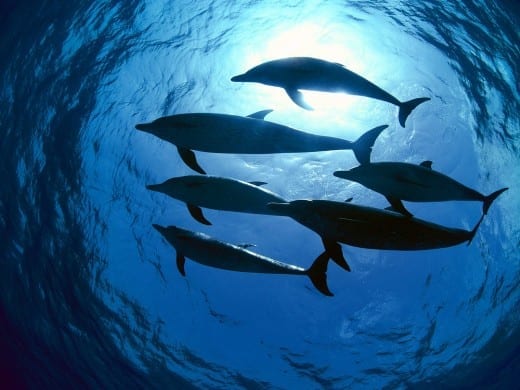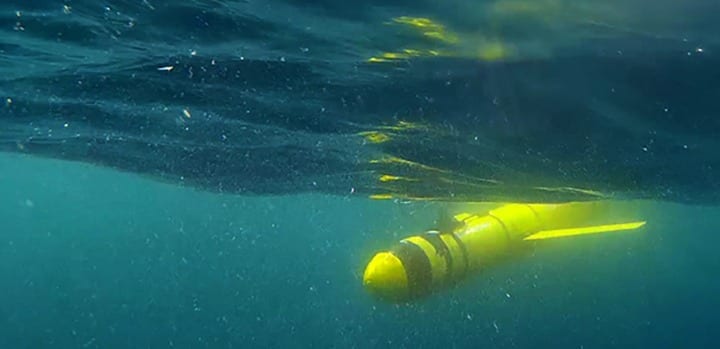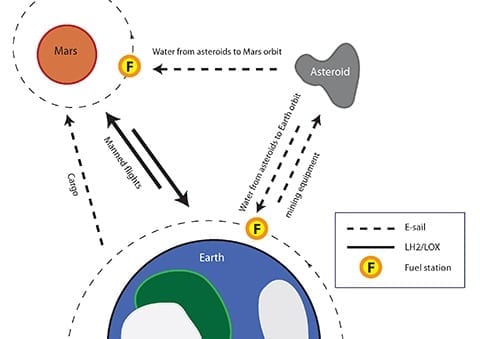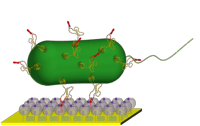
In the vast areas of the planet covered by water, human activity threatens the survival of countless species.
There was a time, for example, when manta rays were tossed back, dead or alive, when they were accidentally trapped in fishermen’s nets in places like Sri Lanka. Now their dried gills are prized in China for treating everything from cancer to measles — without any proof that they are effective — and one of the sea’s most majestic creatures is being fished nearly out of existence.
In Pakistan and India, the blind Indus River dolphin, one of the most endangered species, swims a shrinking stretch of water, trapped by development and dams.
And in Chile, fishermen who cannot afford to properly dispose of torn nets simply tip them into the sea, adding to the offshore trash that chokes seabirds and fish.
Overfishing, habitat loss and pollution threaten species in so many places that research and conservation organizations cannot do all that is needed. So, with the aim of making a dent through small, targeted efforts, the New England Aquarium, which sits on Boston’s downtown waterfront, has for 15 years awarded microgrants to projects across the globe.
The aquarium’s Marine Conservation Action Fund has paid out $700,000 since 1999, supporting 122 projects in 40 countries on six continents. Elizabeth Stephenson, the fund’s manager, calls these projects “stories of hope for the ocean.”
The grants are modest. One researcher, Rohan Arthur, used his $6,700 payout from the fund to buy a “secondhand, beat-up compressor” to fill his scuba tanks. But the support allowed him to maintain his critical assessment of coral reefs in the Arabian Sea off the west coast of India.
Dr. Arthur, a senior scientist at the Nature Conservation Foundation in Karnataka, India, said that in some ways, he preferred the scale of the New England Aquarium gifts.
“There’s a lot to be said for large grants,” Dr. Arthur said, but “often they’re fairly limiting in what they allow you to do.” Small grants, he said, offer more freedom, but can still be transformative. “They’ve been change points in the amount we’ve been able to engage in the ecology of these reefs.”
Read more: Trying to Save the Oceans, One Small Grant at a Time
The Latest on: New England Aquarium Save the Oceans
[google_news title=”” keyword=”New England Aquarium Save the Oceans” num_posts=”10″ blurb_length=”0″ show_thumb=”left”]
via Google News
The Latest on: New England Aquarium Save the Oceans
- Whitcomb: Loud Spring on Campus; Fish Fun in Newport; Sorry in Suburbiaon April 27, 2024 at 11:30 pm
Robert Whitcomb's weekly examination of everything that is important. Only Whitcomb offers such a collection of insights on the global and local issues that matter.
- Baby Seal Found Trapped in Fishing Net on Beach Rescued by Mystic Aquarium Workerson April 27, 2024 at 8:00 am
Seacor & Co. A baby seal has found a new home at the Mystic Aquarium in Connecticut after being rescued ... "It is our job to protect our ocean planet and the animals who call the ocean home.” ...
- Mystic Aquarium welcomes new rescue sealon April 25, 2024 at 3:35 pm
On Earth Day, crews and first responders from Mystic Aquarium rescued a gray seal on Block Island. The seal, which was found alone on the beach, was entangled in a fish net. Mystic Aquarium received ...
- How New England entrepreneurs are creating skincare from lobsterson April 25, 2024 at 2:55 pm
The New England Ocean Cluster in Portland, Maine, is trying to harness the wonders of the ocean and power the blue economy.
- Rescuers save seal tangled in plastic and stranded on Block Islandon April 23, 2024 at 2:26 pm
The seal was entangled in a pink gill net and nylon rope that caused deep cuts to its flippers when it tried to swim. It was taken to Mystic Aquarium for treatment.
- New England Aquarium to remove plastic from gift shopon April 22, 2024 at 1:33 pm
New England Aquarium announced it will be removing plastic from the aquarium gift shop. The aquarium will be working on the initiative with retail partner Event Network.
- Aquarium in New Jersey is up for ‘best in the nation’ honorson April 22, 2024 at 8:27 am
It was first known as the Thomas H. Kean New Jersey State Aquarium. It opened in a virtually abandoned area and was made of cast concrete in drab colors with unappealing row of tanks, virtually no ...
- See which Connecticut streets made the ‘most charming’ liston April 18, 2024 at 11:05 am
Three main streets in Connecticut were spotlighted as some of the most charming and picturesque in the country, according to a study by Mixbook. Mixbook polled 3,000 ...
- Myrtle the 95-Year-Old Sea Turtle Gets Clean Bill of Health at the New England Aquariumon April 15, 2024 at 2:45 pm
Myrtle the Turtle, a beloved aquarium resident since 1970, received a clean bill of health at her recent check-up.
- Nearly 1,000 sea turtles wash up on Cape beaches each year. What Congress can do about it.on April 15, 2024 at 9:50 am
The Sea Turtle Rescue Act, introduced to Congress by U.S. Rep. Keating, got overwhelming support in the House. What does it do, and what's next?
via Bing News









